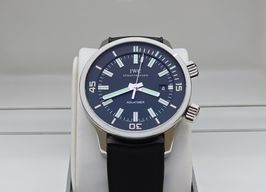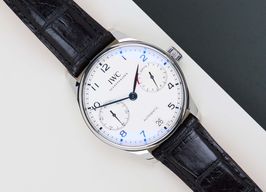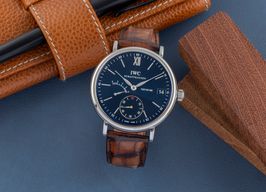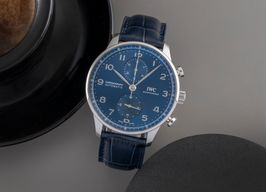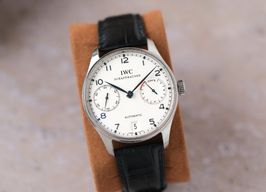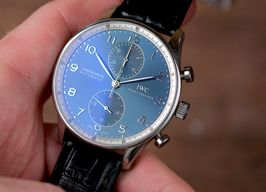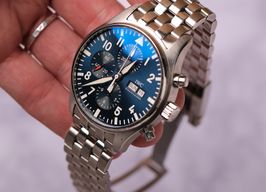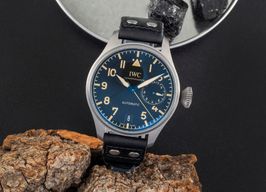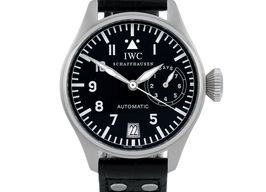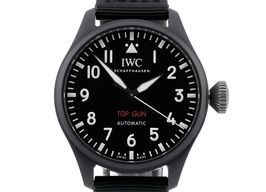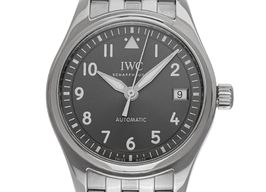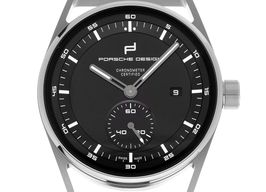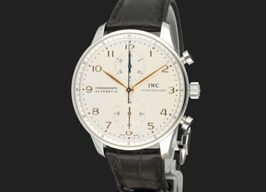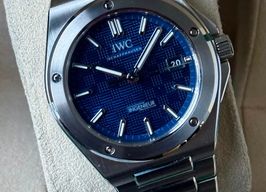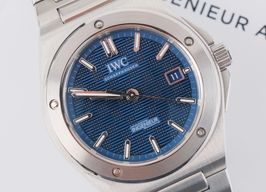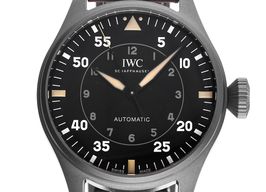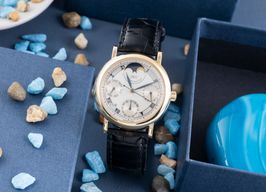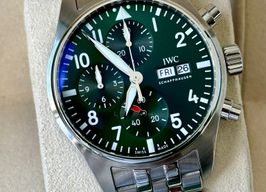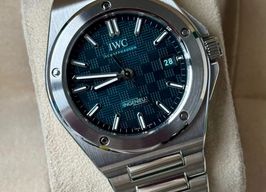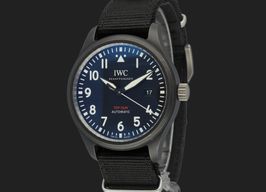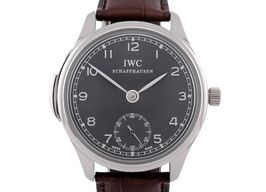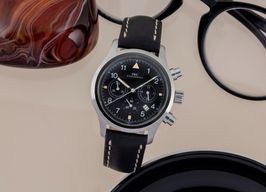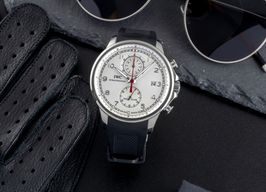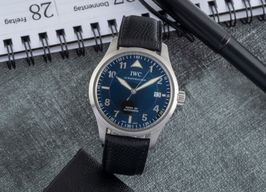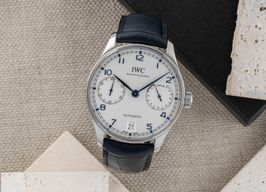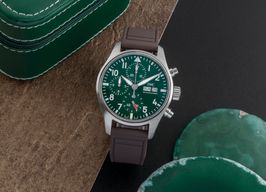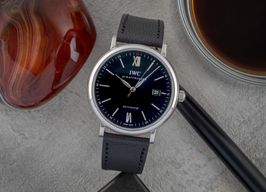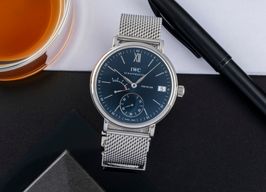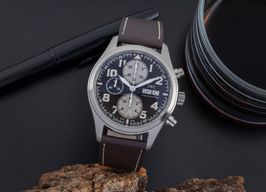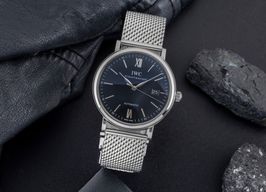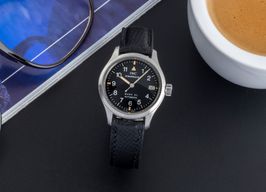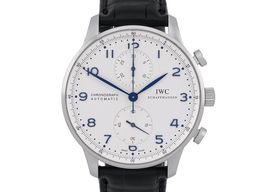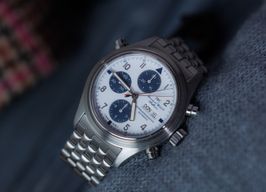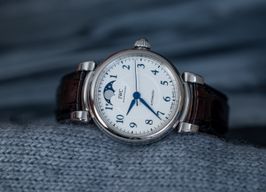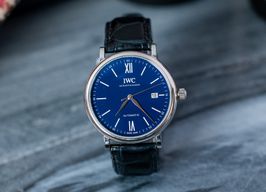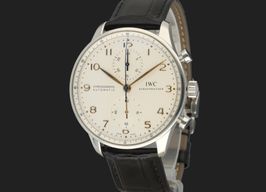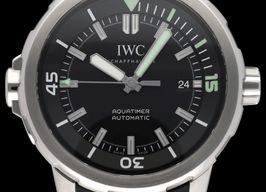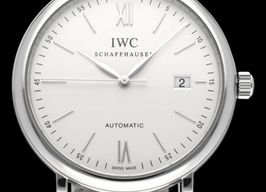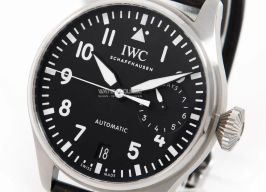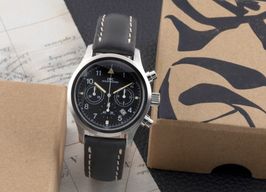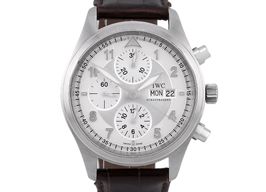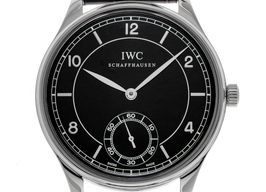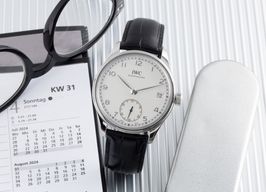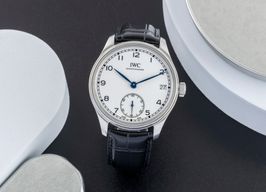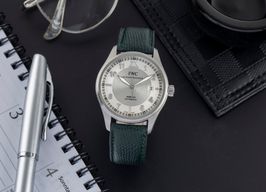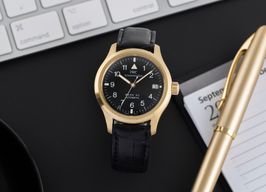
IWC watches
1.362 results
Sort by
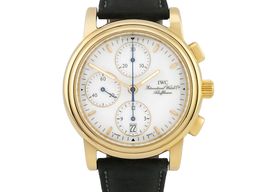
IWC Unknown
IWC | Amalfi Chronograph Gelbgold | Ref. 3703 - Service 2025
IW3703Available
€ 8.200

DE
- 100% Authentic watches
- Safe delivery or pick-up
- Warranty and easy returns

- 100% Authentic watches
- Safe delivery or pick-up
- Warranty and easy returns

- 100% Authentic watches
- Safe delivery or pick-up
- Warranty and easy returns

The IWC Watches
A centennial brand, dreamt by an American and born in the German canton of Switzerland. This amalgamation lead to a history filled with pilots and engineers, Portugisers and Portofinos with Littles Prices in the mix.
The IWC Beginnings
The International Watch Company – IWC, for short - was founded in 1868 by a young American entrepreneur, Florentine Ariosto Jones. Contrary to the typical path of young Americans of the time, who were opening paths in the American wild west, Jones decided to settle in Schaffhausen, Switzerland. Together with his business partner, Henry Moser & Cie - yes, the same Moser from the original iteration of now H. Moser -, Jones used the city’s first hydroelectric power plant to build a factory with an industrialized assembly line, a revolutionary at the time since watchmaking was mostly a craft of manual labor.
Their watches were mostly aimed at the American watch market, which proved to be the downfall of the founder – high tariffs on US Imports and lack of financing forced Jones to sell the company to the Rauschenbach family for 280.000 swiss francs.
After 4 generations of ownership by the Rauschenbach’s, and after barely surviving the quartz crisis, the company was acquired by the Richemont Group and is now under the same umbrella as brands such as A. Lange & Söhne, Jaeger-LeCoultre, Panerai, and Roger Dubuis.
Main models of International Watch Company
There’s something for all tastes when it comes to IWC’s model lineup. From the rugged, yet clean Pilot Watches – which historically have been a trademark of the brand -, to complicated Perpetual Calendars in the Portugieser line and precious metal dress watches of the Portofino line. Throw in a diver and a model specifically designed for engineers and you have one of the broadest portfolios in the watch industry.
The Pilot's watch
IWC developed these models specifically to be used by WWII pilots. They are, at their core, tool watches, purposely designed and built for a specific task, in this case as a navigational tool for aviators.
Within IWC’s pilot range, you can find price points for all budgets. At the lower end of the range, a “simple” 3-hander 40mm Mark VIII – the reference IW327001 is a great example - can be bought for under €4.000.
The larger model, the IWC Big Pilot 43mm with small seconds has more in common with the original pilot’s watches and also commands a higher price tag ranging from the “regular” model at around €7.000 to €10.000 to the Le Petit Prince edition.
If you are looking for a smaller model, the IWC Mark XII ref. IW324101 from the late ’90s is a perfect Go Everywhere-Do Anything 36mm, more affordable alternative to the Rolex Explorer or the Omega Aquaterra.
IWC also offers Chronographs within this range, the highlight being the Spitfire Chronograph, a modest – considering the type of watches in the range – 41mm, bronze-cased, day-date Chrono that trades at a reasonable €5.500 to €6.500, a bargain considering that the movement is in-house with the 69000 caliber.
The Portugieser
Born in the 1930s by request of a Portuguese wholesaler that felt demand for wristwatches with the precision of marine chronometers, the watch wasn’t initially referred to as the Portugieser but only by its reference: 325. The first piece was delivered in Portugal in 1942 and the peculiar story, together with the success of the line, led to IWC adopting the name later down the line, a beautiful homage to the request that originated the collection.
In what comes to pricing, vintage IWC models, with an era-appropriate 35mm and a hand-wound caliber 88, can be had for under €3.000 making them a budget option for people looking for a historically significant watch the timeless styling.
In the middle of the pack, you can find early-2000’s examples of the Portugieser Chronograph, such as the ref. IW3714, which can be had for under €5.000.
In reality, the pre-owned market for Portugieser Chronograph is filled with great value pieces, at a reasonable price point, for people that want a dressier alternative to Pilot Chonographs we’ve mentioned previously.
Modern examples, obviously, command a higher price tag. One of our favorites is the IWC Portugieser Automatic 7 Days, ref. IW500710, a gorgeous sunburst-blue dialed watch with a date and power reserve indicator that can be purchased for €10.000.
If you want to get even more complications and precious metals, the ref. IW503504 is the evolution of the previously mentioned Portugieser Automatic 7 Days in red gold and with the addition of an annual calendar that will set you back around €30.000.
The Portofino
If you want a more traditional approach to watchmaking with a modern twist, the Portofino range is the place to go. Named after (and inspired by) the Italian Riviera village of Portofino, the design from the original 1984 Hand Wound Moonphase Reference 5251 remains (pretty much) unchanged. These pieces will fit wonderfully in a formal environment, with precious and non-precious metal options and the iconic wired lugs looks.
Due to its almost 30 years in the market, you can find pre-owned examples in the €3.000 to €6.000 range. For instance, a late 2000s Portofino as the reference IW356307.
A 38mm three-hander with a date complication, can be had for less than €4.000. A bargain considering the classic proportions, brand heritage, and recognition.
The flagship of the line is the IWC Portofino Hand-wound Tourbillon Rétrograde reference IW516501, a 45mm Rose gold masterpiece featuring a beautifully decorated in-house Calibre 59900 with a 7-days power reserve. It features an unusual Rétrogade date display and a flying minute tourbillon, arguably the most revered complication that a watch can sport.
Divers and Engineers
With the Pilot and Portugiesers models capturing most of the attention, some pre-owned IWC Models have gained a cult following among enthusiasts. We’re talking of the Aquatimer and the Ingenieur, two pure tool watches that also deserve your attention.
IWC’s Aquatimer features an iconic inner rotating bezel, unlike most of the competitors, which means that the double crown necessary to operate said bezel makes it stand out in the crowd of standard dive watches. You can find this model at Wristler, on its reference IW354805 from the late 2000s, for under €5.500. A truly underrated alternative to the Omega Seamaster, Tudor Black Bay 58 and the likings.
The Ingenieur was originally designed by Albert Pellaton in 1954 and revamped in the late ‘70s by Gerald Genta, the legend that designed both the Patek Phillipe Nautilus and Audemar Piguet Royal Oak. Together with rich design heritage comes the technical capabilities of watch built specifically for engineers that is translated into anti-magnetic capabilities comparable to the Rolex Milgauss. Although it started has a simples 3-hand model, more complicated versions were introduced in the ‘80s, including dual-time versions – such as the reference IW3244, which can be found on Wristler for around €6.500 – and chronographs.


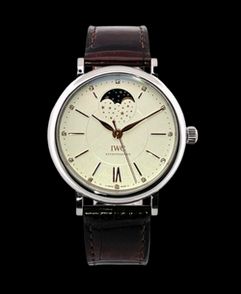
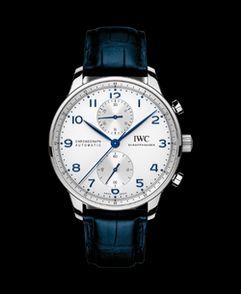
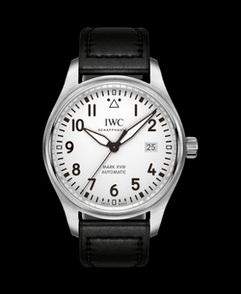
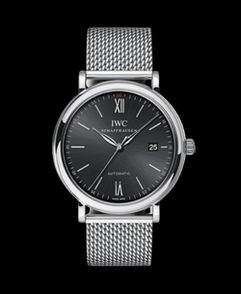
-5MUC.png)
